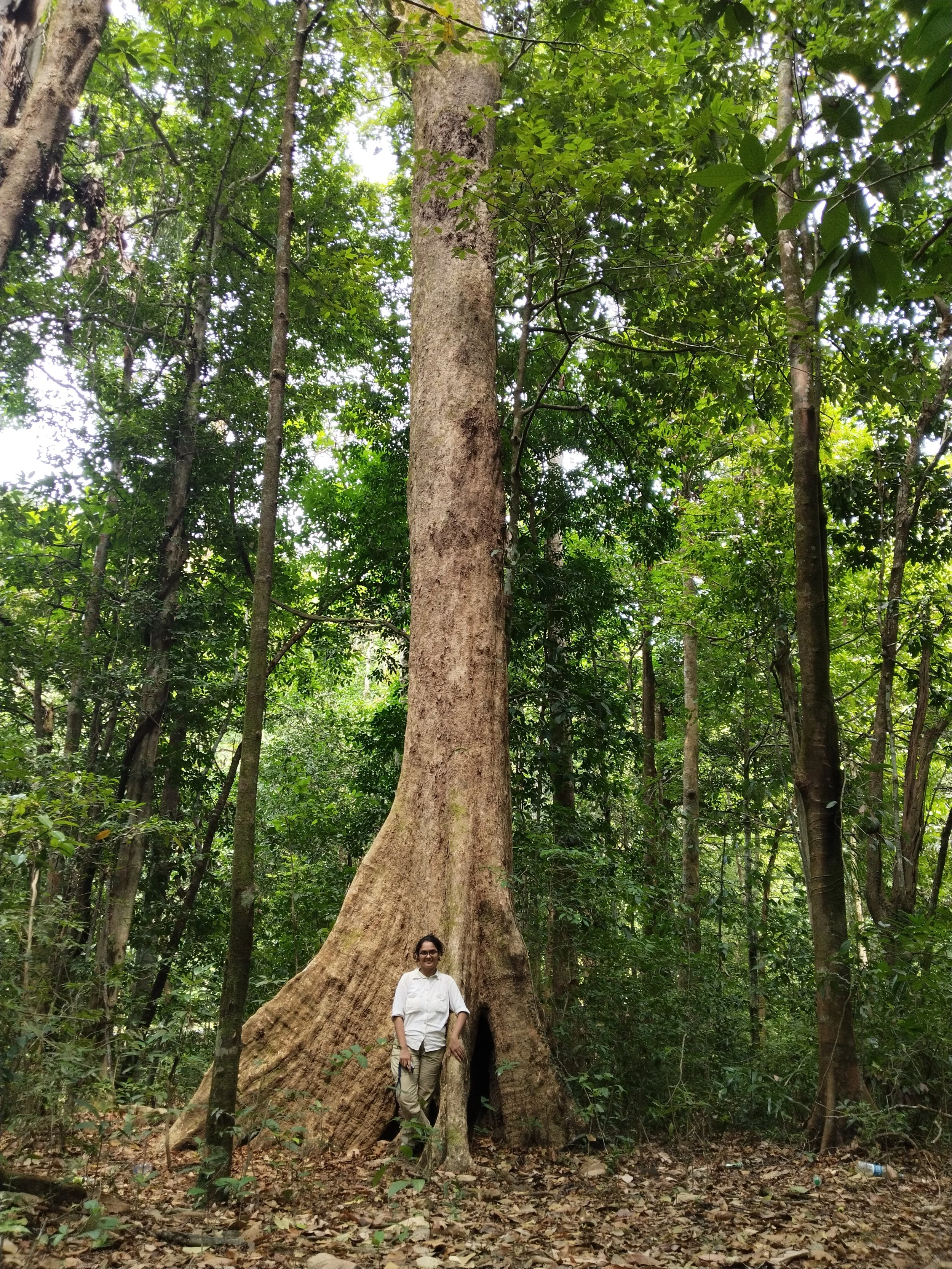Michael Walsh, PhD, MPH
Michael is a landscape epidemiologist and disease ecologist with the Sydney School of Public Health and the Sydney Institute for Infectious Diseases. He is interested in the complex ecology of pathogens and their interaction with hosts, vectors, and environments to shape spillover from maintenance communities. As such, he combines methods from spatial and infectious disease epidemiology with applications of population ecology, community ecology, landscape ecology and macroecology in the service of transdisciplinary One Health approaches to zoonosis inference, prediction, surveillance, and prevention. Michael is particularly interested in the ways in which interactions between wildlife, domesticated animals, and humans in disturbed landscapes facilitate pathogen spillover from primary reservoir hosts to novel hosts. Michael has 25 years’ experience in fieldwork and analytics and modelling and is currently investigating zoonotic arboviruses at the wildlife-livestock-human interface in Australia and India. Find more here.
Victoria Brookes, BVM&S MPH&TM PhD FANZCVS (Epidemiology) FRCVS
Victoria is an Associate Professor at Sydney School of Veterinary Science and the Sydney Institute for Infectious Diseases. Her research focuses on using field and epidemiologic methods to promote evidence-based One Health, particularly for emerging and neglected infectious diseases. She has extensive research experience using methods such as risk assessment and disease modelling for the development of strategies for disease preparedness, including prevention, detection, and response. Victoria has led several projects including One Health for health promotion strategies in the Southeast Asian and Oceanic regions, One Health capacity building in the Pacific region, and One Health on Country: making a difference to animals and their people in remote Indigenous communities in Australia. She is also involved in epidemiologic research of a range of diseases including rabies, brucellosis, Japanese Encephalitis virus, and other emerging arboviruses including Chandipura virus. Find more here.
Chiranjay Mukhopadhyay, MBBS, MD, PhD
Chiranjay is Professor of Microbiology and the Director of the Manipal Institute of Virology, and the Coordinator of the Centre of Emerging and Tropical Diseases at the Manipal Academy of Higher Education, in Manipal, India. He has extensive expertise and impact across a substantial breadth of bacterial and viral emerging diseases, but has a particularly strong in interest in melioidosis and antimicrobial resistance. Find more here.
Cameron Webb, PHD
Cameron is a Clinical Associate Professor with the University of Sydney and Principal Hospital Scientist with the Department of Medical Entomology at NSW Health Pathology, Westmead Hospital. Cameron has spent over 30 years providing advice to local, state, and federal government agencies on how to best manage mosquitoes and their health threats. His focus is on keeping communities safe from mosquito-borne disease through research translation and cooperation with local health authorities. Cameron participates in research projects in collaboration with the University of Sydney and other research institutions around the country as well as coordinating mosquito control and surveillance programs in NSW. His research interests are closely associated with wetland rehabilitation and management in urban landscapes and their implications for the pest and public health threats of mosquitoes. Cameron has also contributed to strategic responses of exotic mosquitoes and mosquito-borne pathogens in Australia including mosquito surveillance and control in response to the arrival of Japanese encephalitis and developing strategic responses to the threats of exotic mosquitoes in NSW including Aedes aegypti and Aedes albopictus. Find more here.
Amrita Pattanaik, MD
Amrita is an Assistant Professor at the Manipal Institute of Virology in Manipal, India. As a clinical microbiologist and virologist with expertise in immunology and neurovirology, she has a particular focus on viral encephalitides and the development and application of diagnostic virology and immunological assays for One Health surveillance among humans, animals and their broader environments. Find more here.
Ruth Zadoks, DVM, MSc (Vet Epi), MRes, PhD
Ruth is a veterinarian and epidemiologist interested in food security and infectious diseases across host species, topics that sit logically in the One Health sphere. Ruth is Professor of Production Animal Health at the Sydney School of Veterinary Science. She has worked in Europe, the Americas, sub-Saharan Africa, Southeast Asia and Australia with disciplines from anthropology and economics to genomics and mathematics to understand how human behaviour facilitates both the spread and control of infectious agents and their antimicrobial resistance determinants at local and global levels. She has a particular fondness for dairy cattle and zoonotic bacteria but has also worked on viral and parasitic diseases in aquatic and terrestrial wildlife and managed species. Through her work, she has learned that even the name of an organism, disease or intervention can differ between disciplines and languages, emphasising the importance of interdisciplinary and intercultural collaboration. Find more here.
Naren Babu N, MSc
Naren is a lecturer at the Manipal Institute of Virololgy in Manipal, India, with a background in public health entomology and a focus on vector-borne diseases (VBDs). His research spans two main areas: (1) surveillance and risk modeling of emerging and re-emerging VBDs such as Kyasanur Forest Disease, scrub typhus, and other zoonoses, and (2) investigating host-pathogen-vector interactions to identify novel intervention targets, most recently studying the role of Aedes aegypti salivary proteins in Chikungunya virus infection. He’s particularly interested in interdisciplinary One Health approaches that integrate field ecology, molecular epidemiology, and data science. Find more here.
Navya Vyas, PhD, MPH
Navya is an Associate Professor at Prasanna School of Public Health, MAHE in Manipal, India. In her 10 years of experience in public health she has been part of outbreak investigations and worked on health security with a focus on health system preparedness with a One Health approach. Navya collaborates with the public sector, including the Department of Health and Family Welfare and the Department of Animal Husbandry and Veterinary Services, in research and community-based activities.
.
PhD Students
Rashmi Bhat
Rashmi is a Project Research Scientist and a PhD scholar at the Manipal Academy of Higher Education, with a focus on arbovirus epidemiology and disease ecology. She is broadly interested in nature-based solutions that minimise public health risk using transdisciplinary approaches. She is keen in pursuing scientific research that feeds into decision-making and tangible policy outputs. She is also interested in science communication and environmental law.
Ni Made Hegard Sukmawati (Ega)
Ega is a PhD candidate in Public Health at the University of Sydney, focusing on arbovirus risk modelling. Her doctoral work centres on developing spatial and temporal models to estimate and map arbovirus risk. Ega’s broader research interests include epidemiology and disease surveillance, particularly at the intersection of climate, landscape, and public health. Her goal is to generate evidence that supports effective surveillance systems and informed public health responses.











